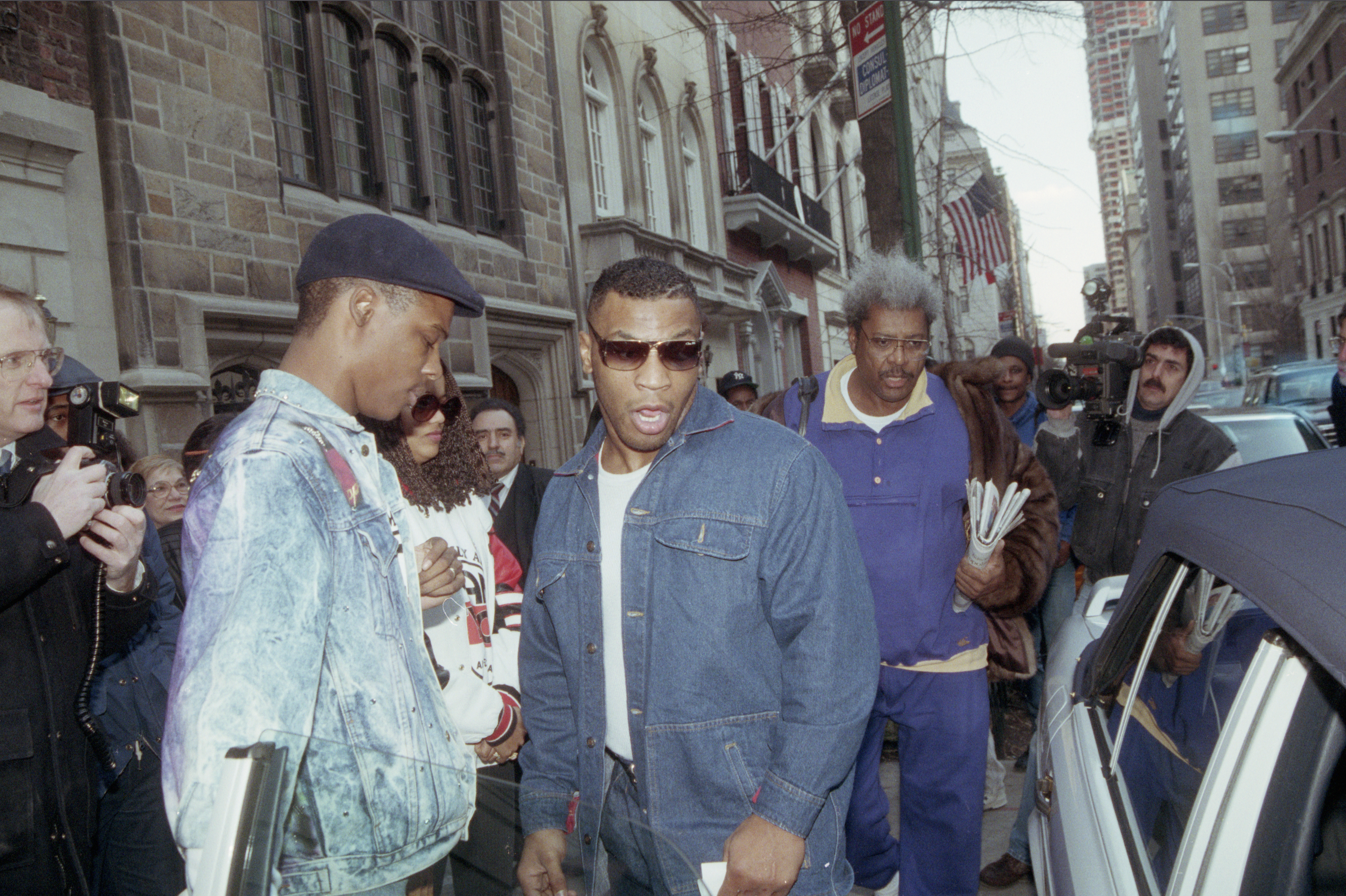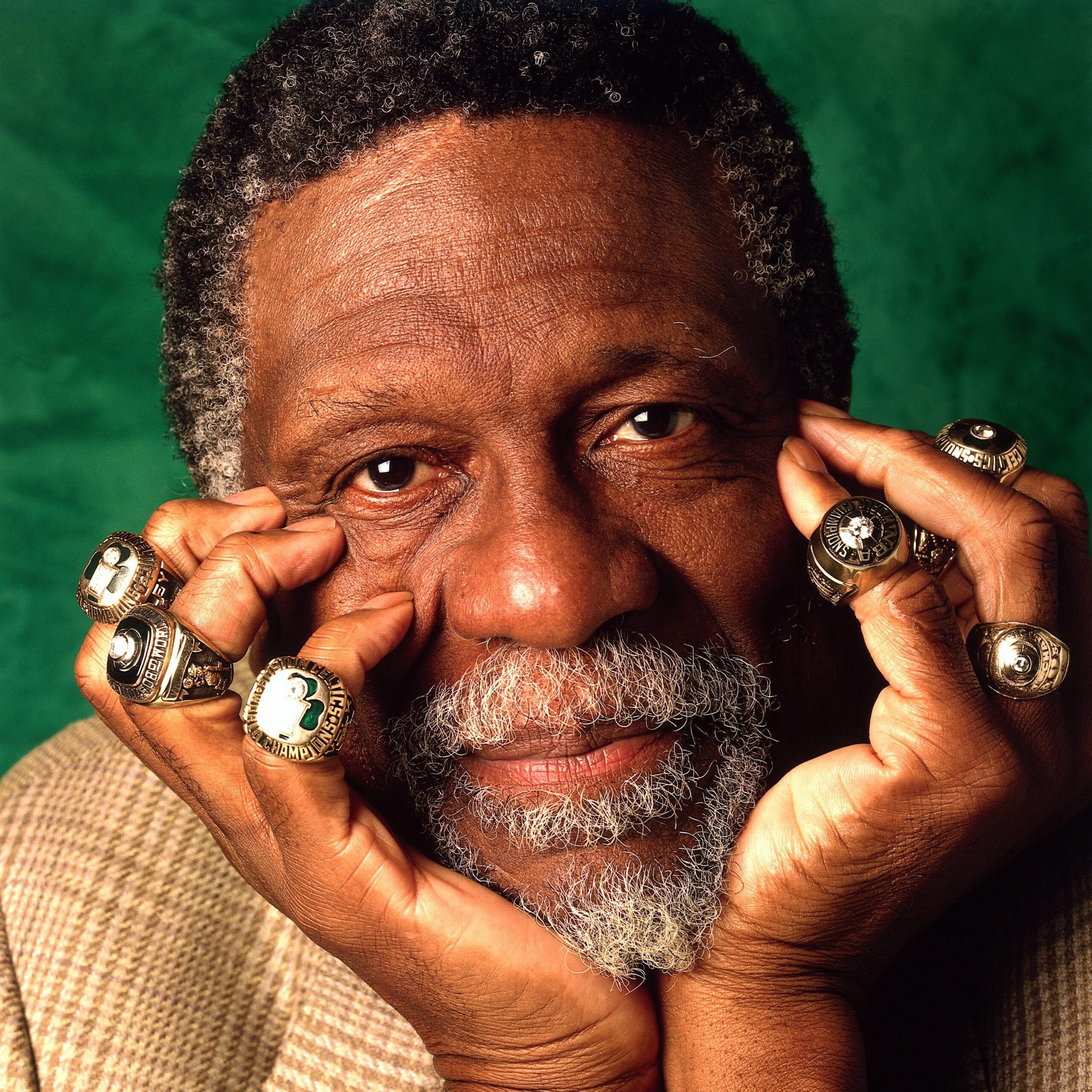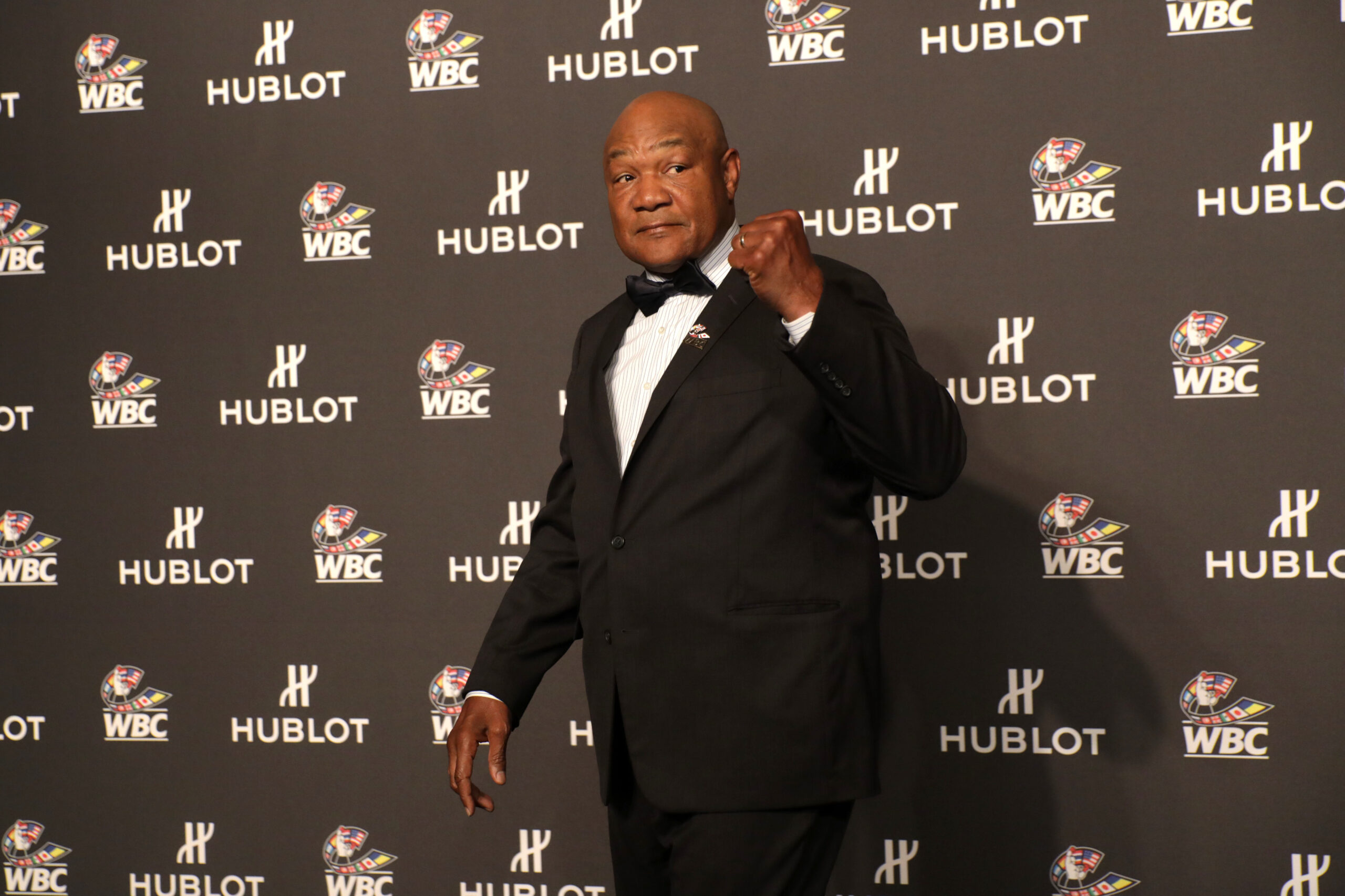This month (March 8th) in 1971, NY’s famed arena Madison Square Garden played host to an event of great cultural importance to Black America, one which was the sum of so many moving parts that to try to decipher them all in one setting can almost be dizzying.
However, those cogs in the machine would give rise to one of the greatest, and most important, bouts ever fought in boxing history and are as significant to the story as are the prized and revered fighters themselves.
This was known as Ali-Frazier I.
READ MORE: Celebrating The Grace Of Muhammad Ali On His Birthday
It would be cliche to simply describe this fight as a tale of two cities for its significance is more far-reaching. It was also a tale of two ideologies, of two upbringings and most assuredly of two styles of representation of both oneself and one’s self-interests. These men could not have been any more different in nature if they tried, yet they both needed each other to thrive.
Ali-Frazier I (Getty Images)
Muhammad Ali, the middle class, self-proclaimed pretty boy from the city of Louisville, was raised around black intellectuals and educators. His ability to talk junk and taunt was only surpassed by the power of his punch. He employed charismatic charm on cue and effortlessly wooed those in his path effortlessly.
Men wanted to be like him and women wanted to be with him, until they didn’t.
His fall from grace and rise to fame would be an epic tale for generations to come. Understanding why his choices were the correct ones for the pilgrimage that his path would intersect is crucial in understanding the man himself. In his own words, he was a “Bad Man” and to enter the ring with him was literally to take your very life into your own hands as a fighter. Many tried it and even more than that failed.
Muhammad Ali (Getty Images)
Conversely, Joe Frazier, the youngest of 12 children, started life off early in the fields of his native Beaufort, South Carolina. The son of a sharecropper felt the effects of the vicious cycle of racism of the times while working for a white man who barely spoke in complete sentences to him. Finding himself all on his own at the tender age of 15, Frazier headed North where he later adopted Philly as his hometown.
The hardscrabble life of the “City of Brotherly Love” found Frazier working in a slaughterhouse during the day and training to be a boxer in the evening. The fighter’s desire for boxing greatness found him punching sides of beef in a refrigerated room on the job just to train whenever and wherever he could. T
His ritual would later inspire movie creators and find itself into the cult classic boxing film Rocky.
While both men won Olympic medals for boxing, they found very different realities upon returning to the United States after their respective international victories. Ali was lauded as the enigmatic hometown hero. He received press attention and the spoils that any conqueror would surely expect after a hard-fought battle.
However, Frazier returned home penniless and struggled to keep his family above water. It was due to the kindness of strangers that his children were able to enjoy a wonderful Christmas that same year.
One man challenged narratives and did everything in his power to change the status quo, and the other simply showed up and did all that was asked of him in order to achieve the dream he had fantasized about since childhood, literally rolling with the punches just to progress in his field.
While the two men were so dissimilar in a plethora of respects, up to and including their embrace or rebuke of the Federal U.S. Vietnam War draft, there was at least one major subject that most folks thought would, or maybe even should, unite them. That thing of course being their blackness. But even that was viewed as a vastly different state of being as one man challenged the other’s very membership into the black community.
Ali became a militant voice within the African-American experience. His embracing of the black culture and determination to become a spokesman that demolished those that would impose the societal ills that damaged the fabric of his community would be a rod that would forever stick in the craw of Frazier.
This was so because upon choosing to enlist in the Army and to keep his personal political ideologies to himself he was deemed an Uncle Tom by Ali, arguably the most hurtful name one could call another in the black community. Ali felt that Frazier was a Tom for not publicly taking the same stances on black trials and tribulations in the same ways that Ali so often did.
READ: 50 Years Ago, Muhammad Ali Was Fighting For More Than His Title
At the time, there were still parts of America that were under the impression that all Black Thought was similar. For those people, a rude awakening lied in wait. And woke was what everyone quickly became. The world at large was shocked to discover the vast differences in the hearts and minds of the black community as Ali took verbal jab after jab at Frazier, who had been doing everything he could up to that point to help Ali both financially and to set up a fight that everyone around the globe wanted to see.
The tongue-lashings bewildered Frazier, as he seemed to only want to get along. However, the more passive Joe was the more he was taunted and called ugly, flat-nosed, dumb and slow. He was being denied into a club that he should have had a guaranteed membership to. What Ali was doing and saying subsequently embarrassed him as his pass was almost eternally revoked and Joe simply wanted to understand why?
The nation was suddenly divided into new lines. It was Ali vs Frazier. If you were against the war, supported black pride at the whatever-it-takes level, fought against racial or religious injustices, or simply just subscribed to loud boisterous jeering from a prizefighter, then Ali was your guy.
If you were in support of the non-violent civil rights movement, were less inspired by political inner workings in your day to day life, were in support of the Vietnam War, thought people were taking civil rights too far, found Ali to be a draft-dodging loud mouth, or simply felt that it was better to thug it out in the ring instead of all over TV and other forms of mass media, Frazier was the one for you.
The electricity within the heart of the nation for all of the aforementioned reasons was almost incomparable within sport. For here were two black men that were ready to brawl for a $2.5 Million purse and the respect of the world. But there was still one more difference. While one fighter was ready to get his real life rock-em-sock-em on for pride and to retain his title, the other fighter was ready to kill or be killed out of complete, unadulterated anger.
It was showmanship on the most ultimate of levels versus unmitigated frustration, determination and a feeling of all or nothing that many in sport understand but never have to live up to.
Frazier won the fight in the end because he had to. Ali would always be seen as “The Greatest” no matter what happened at the end of the 15-round bout. But Frazier had to win just to be taken seriously. He had always been told his title didnt count because he had not beaten Ali to get it, and even after he did hand Ali his first loss he was not the treasured champion that he deserved to be. Ali would ultimately be deemed the winner in the legacy battle.
There is a moral to this story that presents itself to this very day. We all have that guy or gal at our job who cant stop themselves from running their mouths during a meeting or presentation or big project in order to make themselves seem bigger in the process.
They may be prettier than us and their vocabulary might be on point in a way that we could read the dictionary cover to cover and still not walk away with. But instead of matching wits with Joe or Jane Pain In the Behind, we instead plug away at the tasks at hand in hopes of getting ahead through due diligence and good work ethic.
Unfortunately, that doesnt often work. There must be a little of both of these fighters in us all to catapult us where we want to be in our careers.
As we look out of our windows and onto our TV screens in present day America, we see some of the exact same themes playing out in all forms of being. There are protest themes in our music, on our news shows, outside of our White House and recovering Capitol Hill and within our athletes at athletic events, i..e Colin Kaepernick’s protest in the latest NFL season or the refusal of some of the World Champion Patriots to go to meet the President as a reward for their Super Bowl victory. And the all-sports boycott led by the NBA’s Milwaukee Bucks.
So whether you are talking about a Talib Kweli or Jasiri X type of song or an appearance from an artist that went to visit Donald Trump as did Kanye West, the differences are stark. Steve Harvey and other entertainers are being vilified within the black community for being willing to speak to the former President as he released an agenda upon people of color to the likes of backlash that has not been seen since the pre-civil rights era.
Once again, the Uncle Tom moniker is being thrown around at people within the African-American realm. It seems our grandparents were indeed correct when they told us that, If you don’t learn from your history, you are doomed to repeat it. The current George Floyd murder trial, where former officer Derek Chauvin, stands accused of third-degree murder charges, will once again give us a firm answer about who America wants to be moving forward.
READ: George Floyd’s Funeral Was An Energy Boost For Black America’s Exhausting Fight For Equality
Even with the recent transfer of power in the United States, the energy in the U.S. is perfumed with the lingering frustration that the wrong people have unfairly won. Have the lessons from Ali and Frazier been embraced and digested enough to keep the Black Community from any further self-estrangement in a time when they need each other more than ever?.
Only time will tell.





